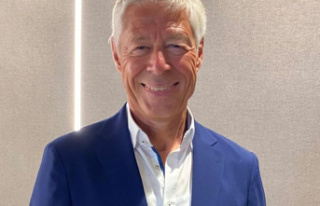Corona, inflation, gas crisis and possibly even more refugees: The risks for the next state budget are great. Green-Black does take precautions, but also increases the scope for investments at the expense of the risk buffer.
Stuttgart (dpa / lsw) - After more than six hours of negotiations, the leaders of the green-black coalition have agreed on the planned additional spending in the 2023/2024 double budget. On the other hand, the decision on new positions should not be made until the next meeting of the budget commission in September, the German press agency learned late Tuesday evening from the coalition in Stuttgart. At 1.38 billion euros, the corridor for additional spending includes slightly more money than envisaged by Finance Minister Danyal Bayaz (Greens). The buffer for possible tax shortfalls was reduced by 140 million euros to 460 million euros.
Greens and CDU want to spend a good 800 million euros on so-called inevitable additional needs. This includes expenses for refugees, precautions for the corona pandemic, the penal system or the expansion of broadband, for which the state has to co-finance federal funding. The country is spending another 570 million euros on political priorities. According to the Greens, the coalition wants to advance digitization in schools and administration with 150 million euros and climate protection with 80 million euros.
Finance Minister Bayaz said after the meeting: "We want to do what is absolutely necessary to lead the country safely through the crisis." In times of war, inflation, disrupted supply chains and pandemics, it is about “smart risk management”. The buffer for rising prices, for example in construction, remains at one billion euros. If tax revenue should collapse, there are still 460 million euros in reserve. Bayaz explained: But that will not be a savings budget because you are also investing. Money is also flowing into the expansion of renewable energies - also on state buildings. "In this way we are also making ourselves less dependent on Russian gas and fossil fuels."
The leaders of the Greens and CDU, Andreas Schwarz and Manuel Hagel, emphasized how constructive and trusting the talks had been. Schwarz also emphasized investments in climate protection. "With today's decisions, we are making visible progress in climate protection - on the streets, in the authorities and on the roofs of the country." You can't afford to lose years here. "Those who save on climate protection now will add more later."
During the summer break, the coalition partners want to discuss what the remaining 340 million euros from the corridor should be spent on. "In view of multiple crises, we will have to juggle several balls at the same time in the next two years," said Schwarz. That requires "discipline and caution in budgeting. Especially because we want to get by without new debts". After the tax estimate in November, one must check whether the risk buffers need to be increased again.
CDU parliamentary group leader Hagel explained that the climate protection package should, among other things, continue the state initiative for electromobility and expand the charging station networks for electric cars. But Hagel also said: "The future state budget will be a real tightrope act. We have to prioritize what is desirable and what our country really needs now." It is clear that the police, judiciary and civil protection are to be better equipped and the hiring offensive is to be continued. Interior and Digital Minister Thomas Strobl (CDU) was pleased that the digitization of administration was a focus of the budget. "This makes it possible to advance necessary future topics even in difficult financial policy times."












